Welcome to In the Flash, a reader-supported publication about intent and creativity in photography
I was maybe one of the last people in NYC to see Barbie, and one of the few who disliked it. It wasn’t bad enough to hate, but it wasn’t good either. In coffee equivalent, the film was a watery vanilla latte — too much syrup, too little bite. Under the pretext of “feminism”, the studios shoved into our collective mouth an advertising campaign, and their way to distract from the three-hour-long commercial was to mention “patriarchy” more times than in all movie history combined.
In one of my recent newsletter posts, I doomed the idea of “celebrating” in photography to a list of Don’ts. After Barbie, I realized that sentiment is staggeringly anti-2023. The film was able to get away with masquerading commercialism under the guise of celebrating women. It did so crudely and hypocritically — nothing shatters patriarchy more than the main character resembling an AI-generated, male wet dream — but still created a cultural tsunami so big that it became an artistic statement in itself. An artistic statement that I don’t care for, for this kind of self-congratulatory feminism is the antithesis of the approach I have taken in my own work.
I spent my career looking at women, looking at men looking at women and women looking at other women. Observing how women navigate public spaces and social situations has been a repeating and obsessive theme. I am no expert in feminist studies, and while the term “feminism” has been overused, misused, and abused into a bloody, unrecognizable mess, I have always considered my work to be feminist in its essence.
When the New York Times published my two-year-long project on bachelorette parties in 2012, for the first time in my still nascent career, I was attacked by internet trolls. “What kind of man is interested in these women?” was the general gist of the commentary, left mostly by women. The idea of brides sipping on a dick straw or being in the vicinity of male strippers exposed the low-key misogyny that designates women to a gentler, more virtuous role in society than men.
Emboldened by the scandalized feedback to Bachelorette, I went out to the Meatpacking District in NYC to photograph courtship rituals after dark. To many, women in high stilettos getting catcalled as they stumble through the cobblestone streets is a far cry from feminism. Not for me. I witnessed groups of young women in full armor of makeup and miniskirts, triumphantly sailing past the gaping men into a night of revelry. What made the work feminist was examining this social behavior without judgement, as I will defend the right of any woman to go out with her girlfriends and make alcohol-fueled, questionable decisions.
Ambivalence rather than moral vigor has been the driving force behind my photography. I don’t elevate women to an ethical high ground or give preference to a female gaze over a male one. And contrary to the current ethos, I am uninterested in either condemning or celebrating the people I photograph, which is why I look at Women for Trump with the same eye as I do at Women’s March protesters and at Amish girls on a beach with the same empathy as at bridesmaids getting drunk at a bachelorette party. My work is feminist because it is committed to disregarding the qualitative labels that society attaches to the idea of femininity.
The female photographers who inspired me have one thing in common: their brand of feminism is messy and speckled with contradictions. Elinor Carruci documented herself from her early 20s up until now, in her early 50s. The viewer gets a glimpse of a woman who is falling into traps and photographing herself out of them. She is desiring to be desirable and unflinching in her self-awareness. Harley Weir looks at the human body in her book, Function, and what I love about it is the absence of a definitive female, or male, gaze. Her exploration of female sexuality is a metaphor that’s more clinical than poetic, and the viewer is left intrigued and puzzled. Another favorite is Francesca Woodman’s strange self-portraits, in which she puts herself on display and erases herself all at the same time. The troubling perception of the images is retroactively colored by her suicide at 22, but even without knowing that, Francesca’s conflicted experience as a young woman is simmering in these classically composed, monochrome photographs.
Feminist photographers celebrate being a woman in many different ways, whether through nuanced glimpses of their psyche, elevating an intimate female experience, or fracturing stereotypes. But “celebration” framed as a goal, reduces any ideas to moral kitsch and renders the art inoffensive — a desired sentiment of our cultural landscape where even museums are putting up trigger warnings. When both artists and publications slap the “celebratory” label on anything and everything with the theme of being a woman and a hint of joy, feminism in art begins to resemble a commercial slogan.
Which brings me to Barbie.
Amy Schumer was given a stab writing the first Barbie script, but it was rejected for being too dark and not celebratory enough. I would have liked to see that film. Instead, in a country where the right to abortion has been demolished for millions of women, the enthusiastic feminism of Barbie feels naive at best. It reduces any hint of complexity to a smug one-liners while reinforcing the status quo. The film made me miss Reese Witherspoon in Legally Blonde, who confronted ditzy blonde stereotypes with self-deprecating humor and influenced a generation of women lawyers. Feminist icons come in different shapes, disguises, and interpretations, but Barbie is not one of them.
Caution: Bachelorette Party. Photographing a Ritual of Freedom and Sexuality
Find me on Instagram
Find me on TikTok




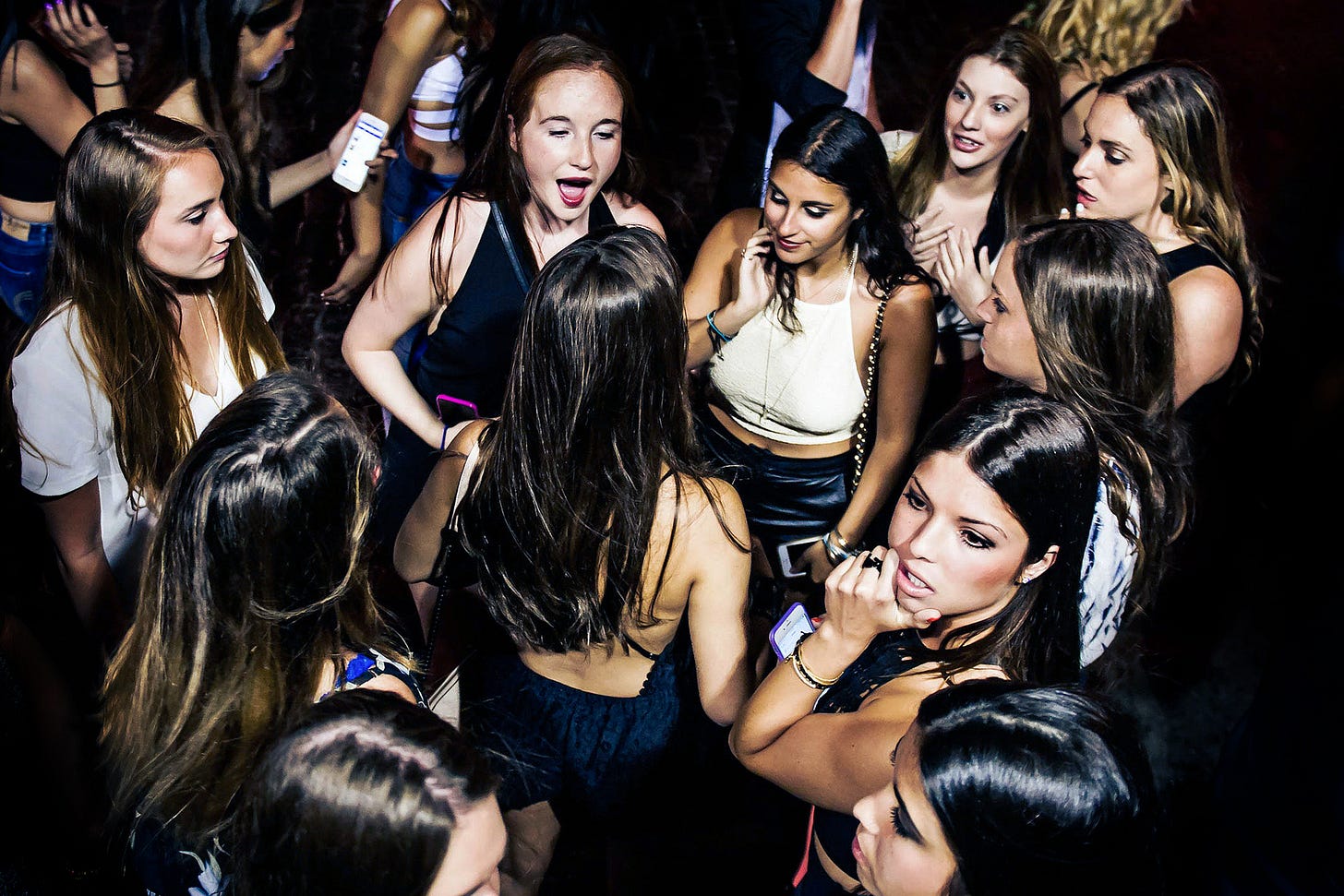
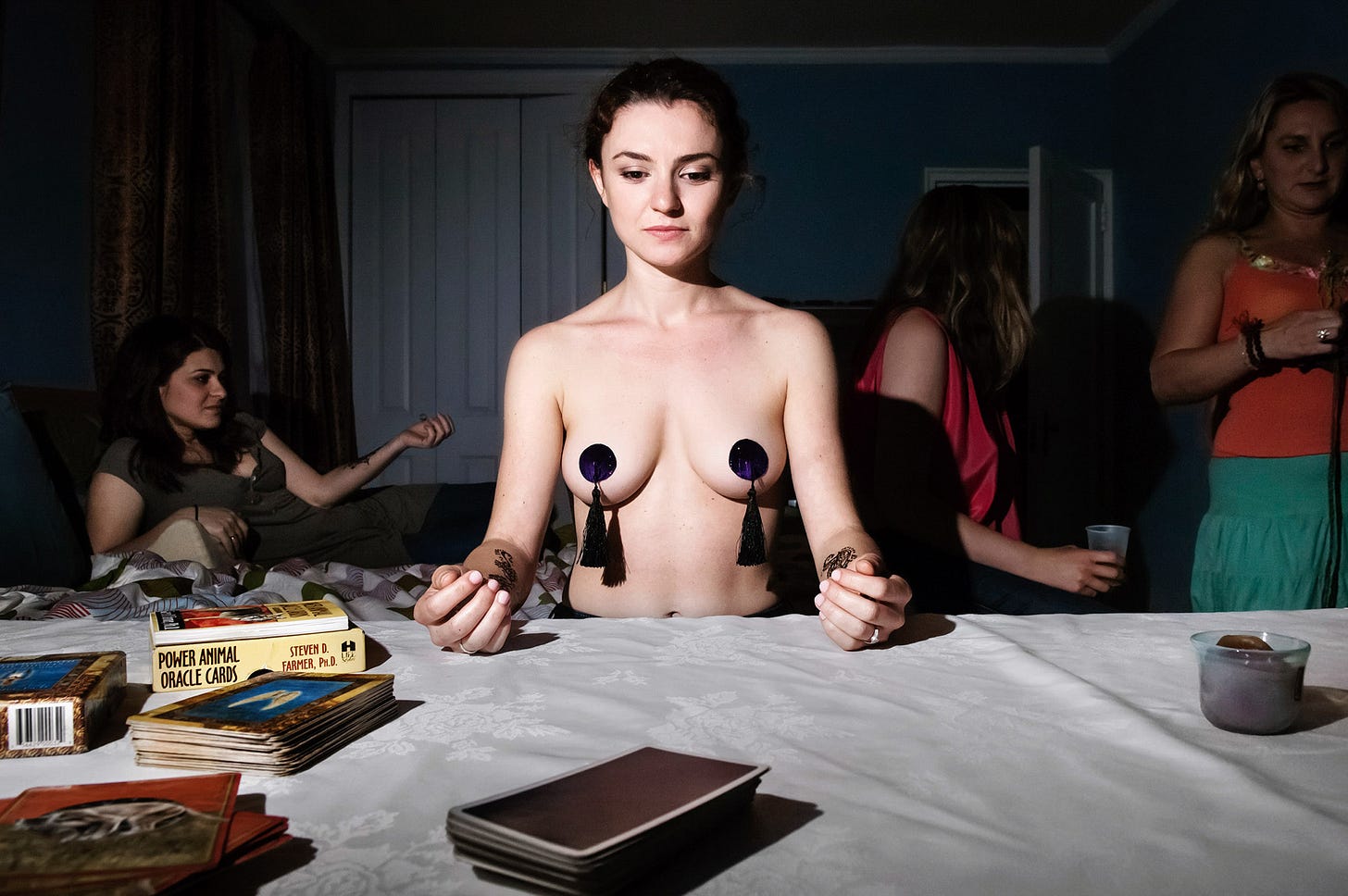
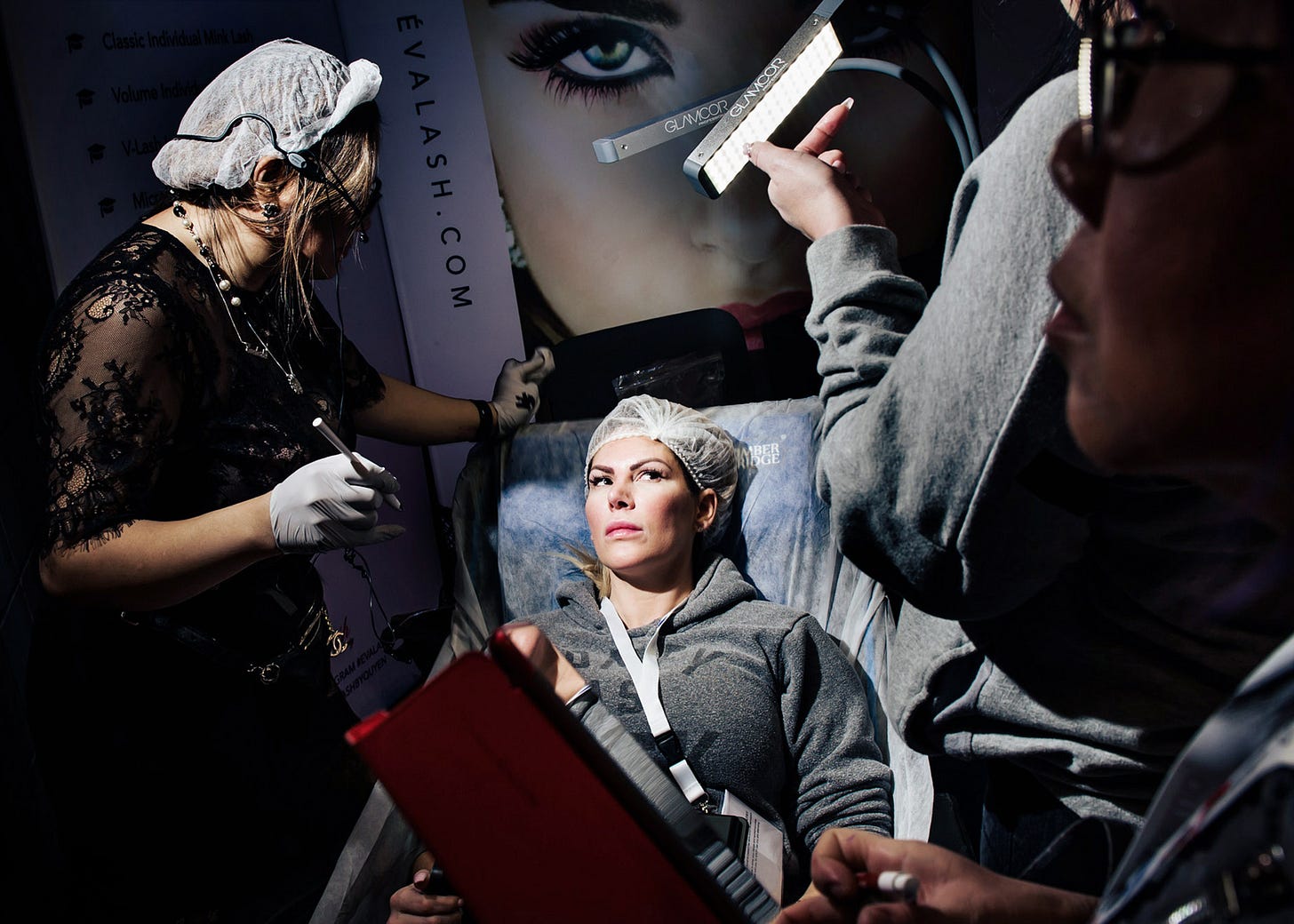
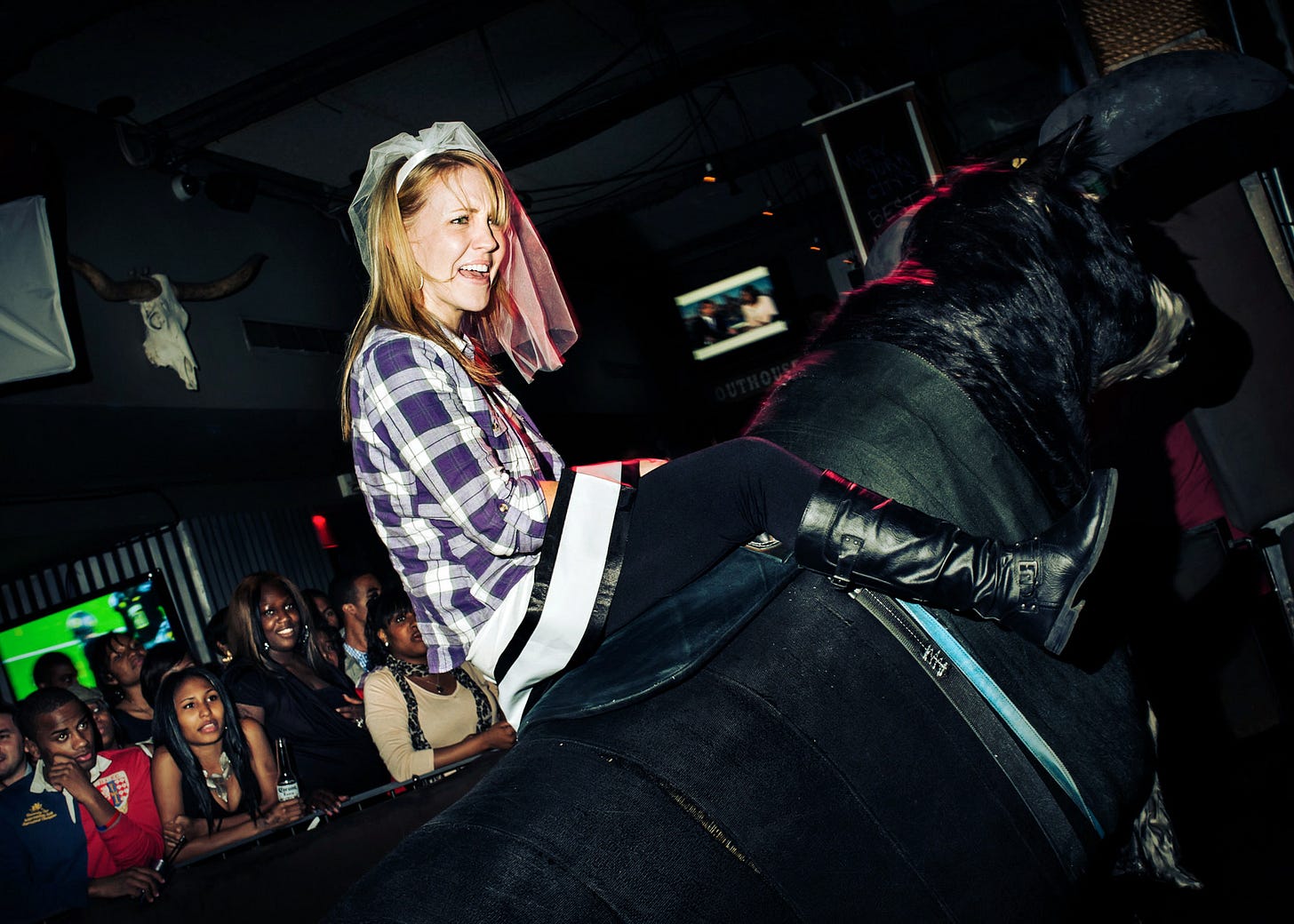
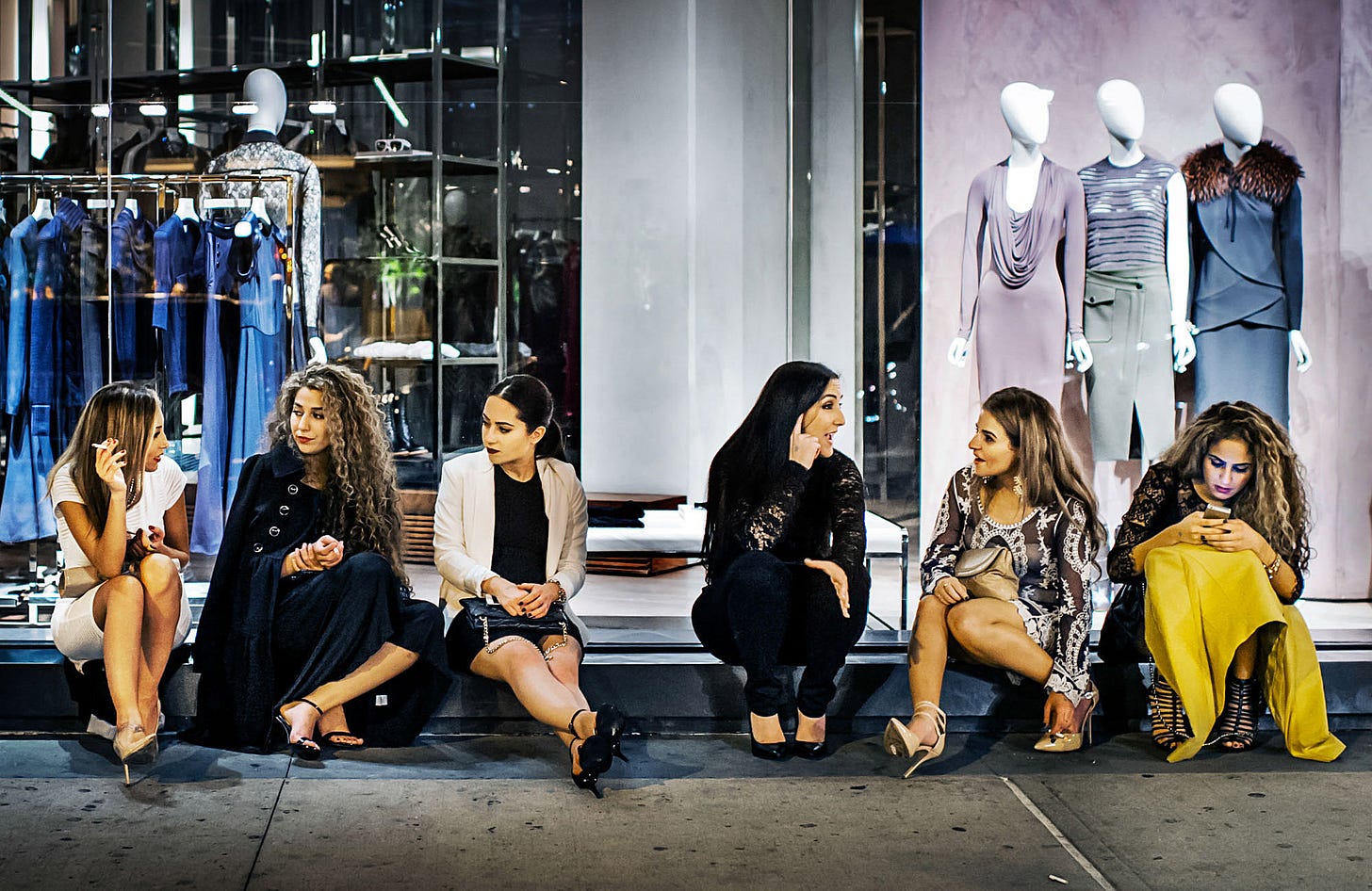
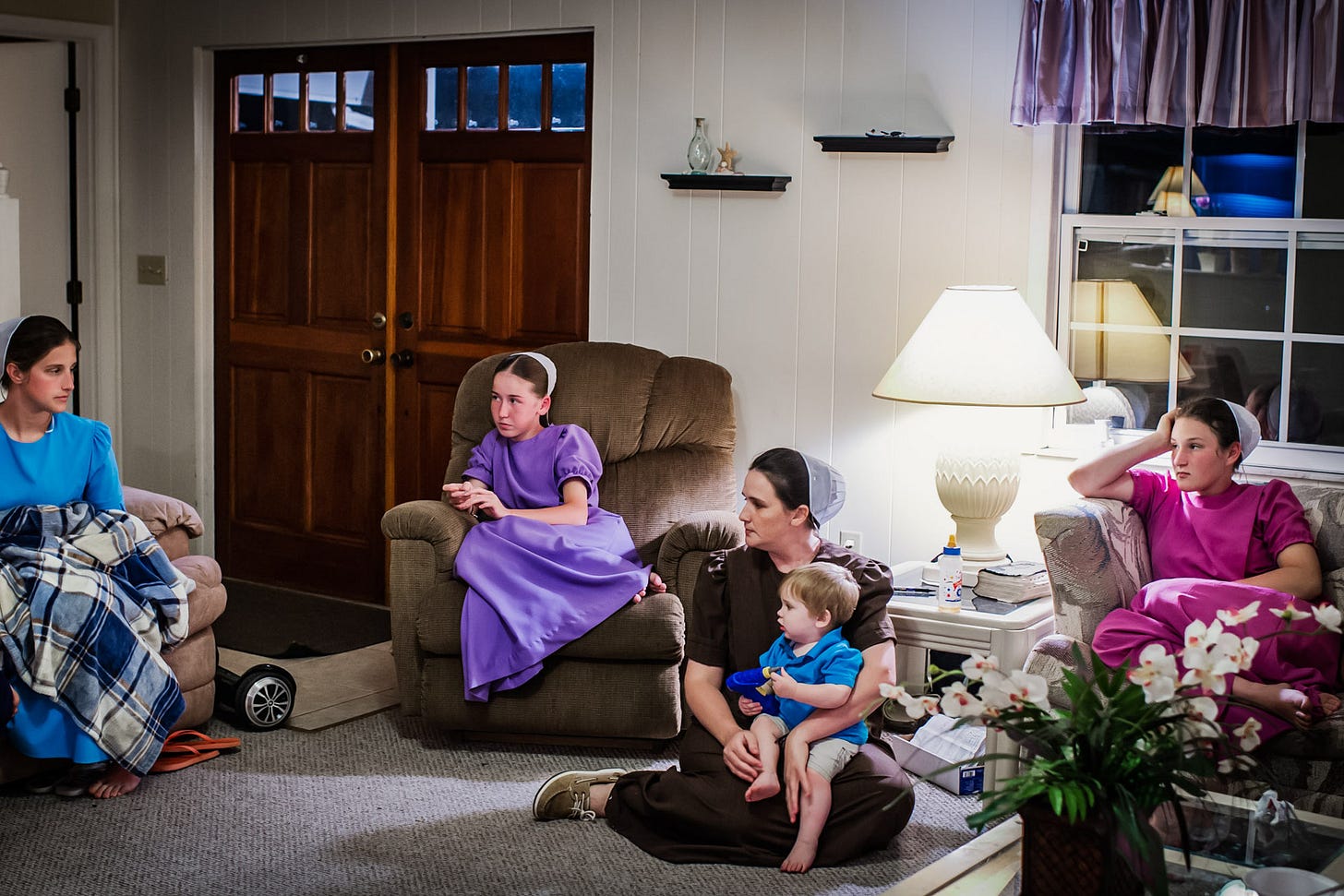
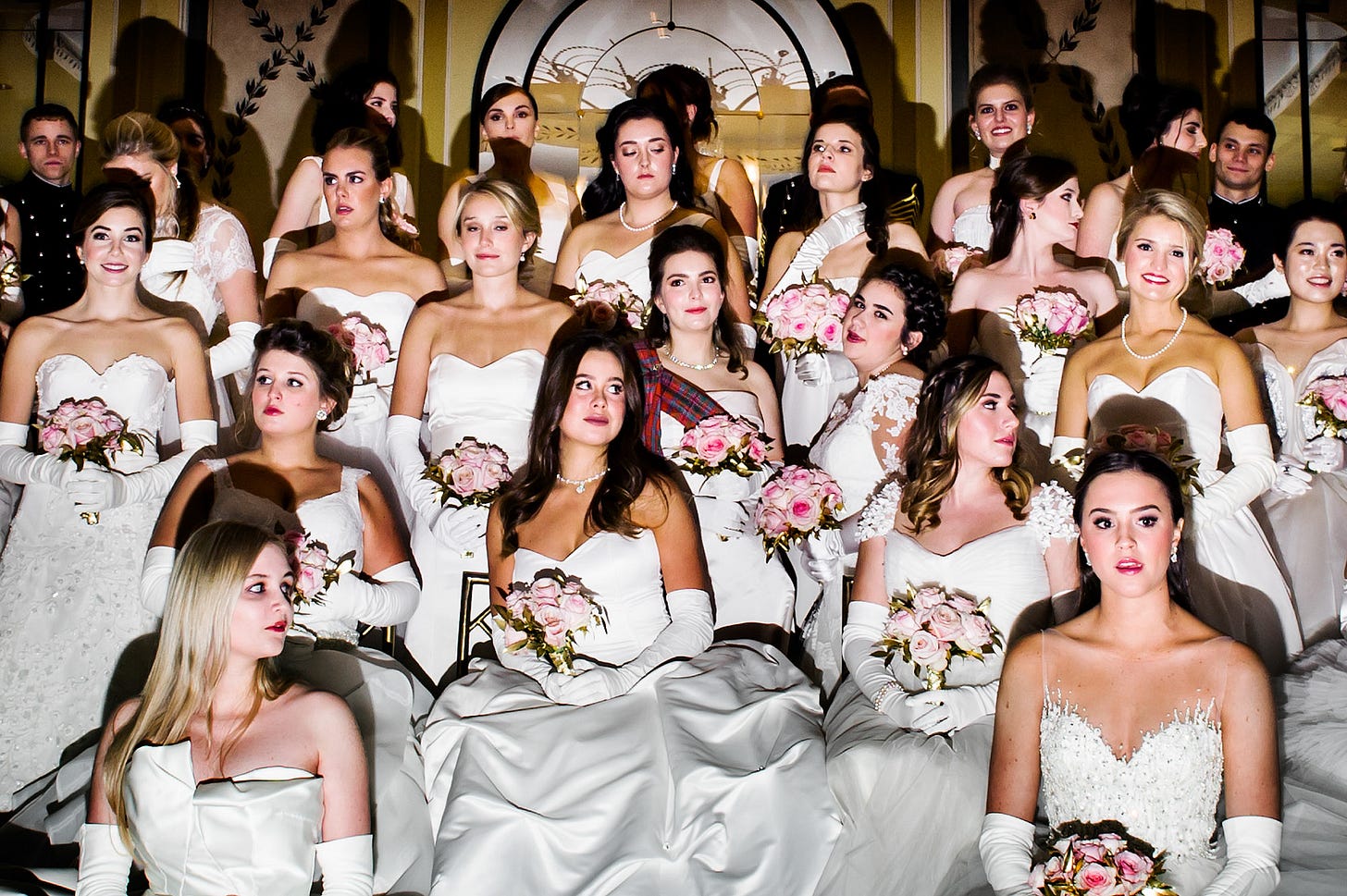
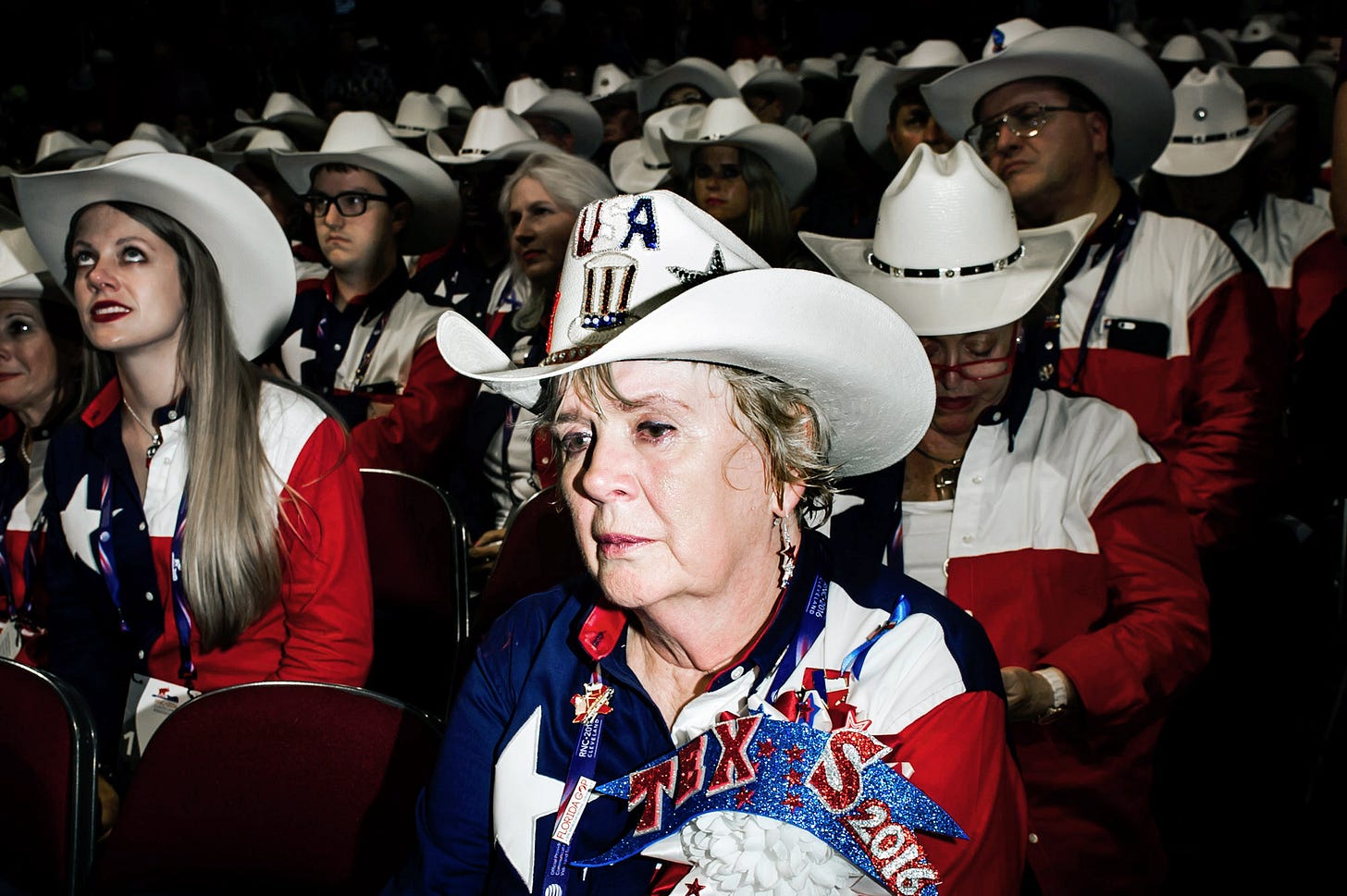
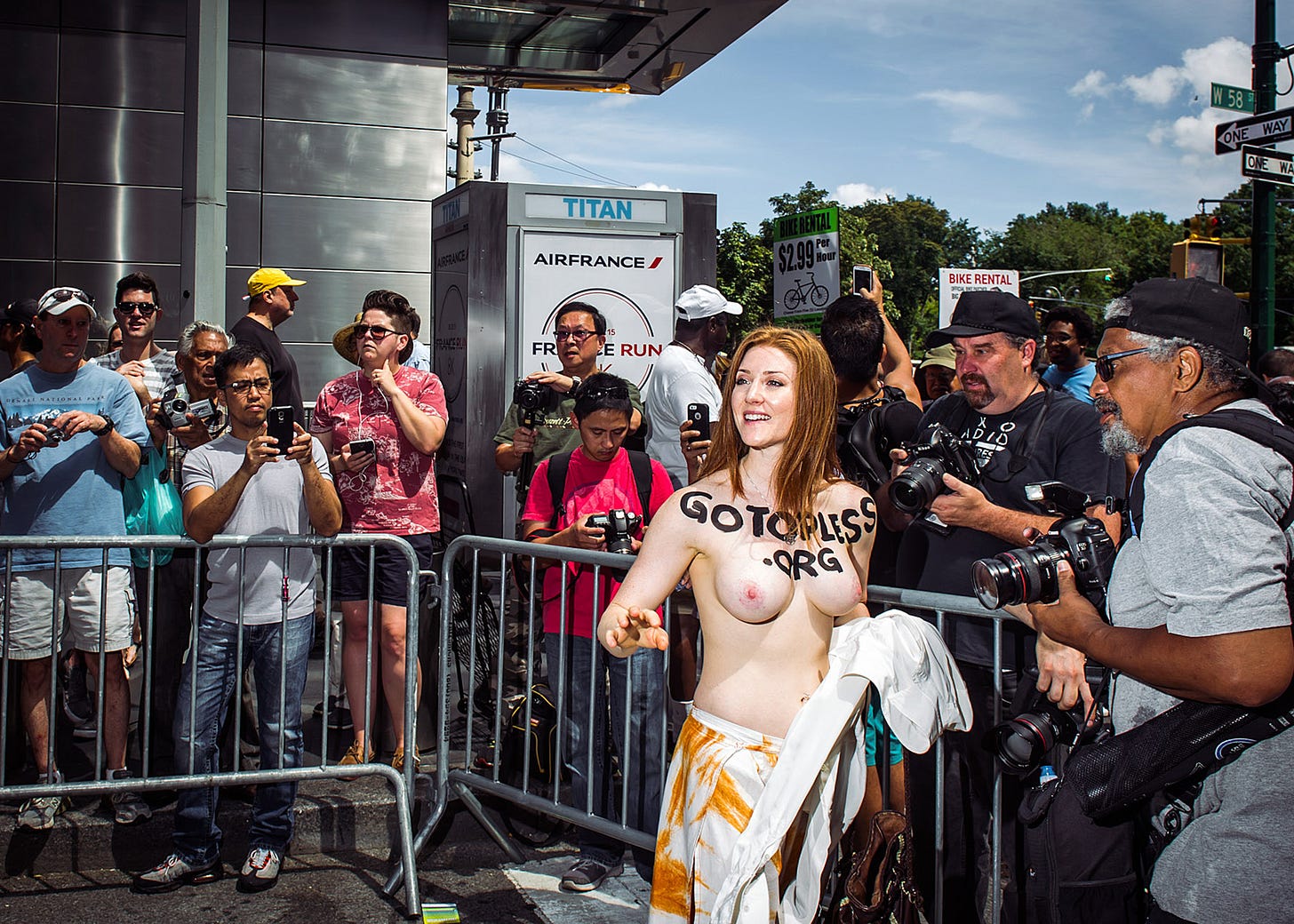
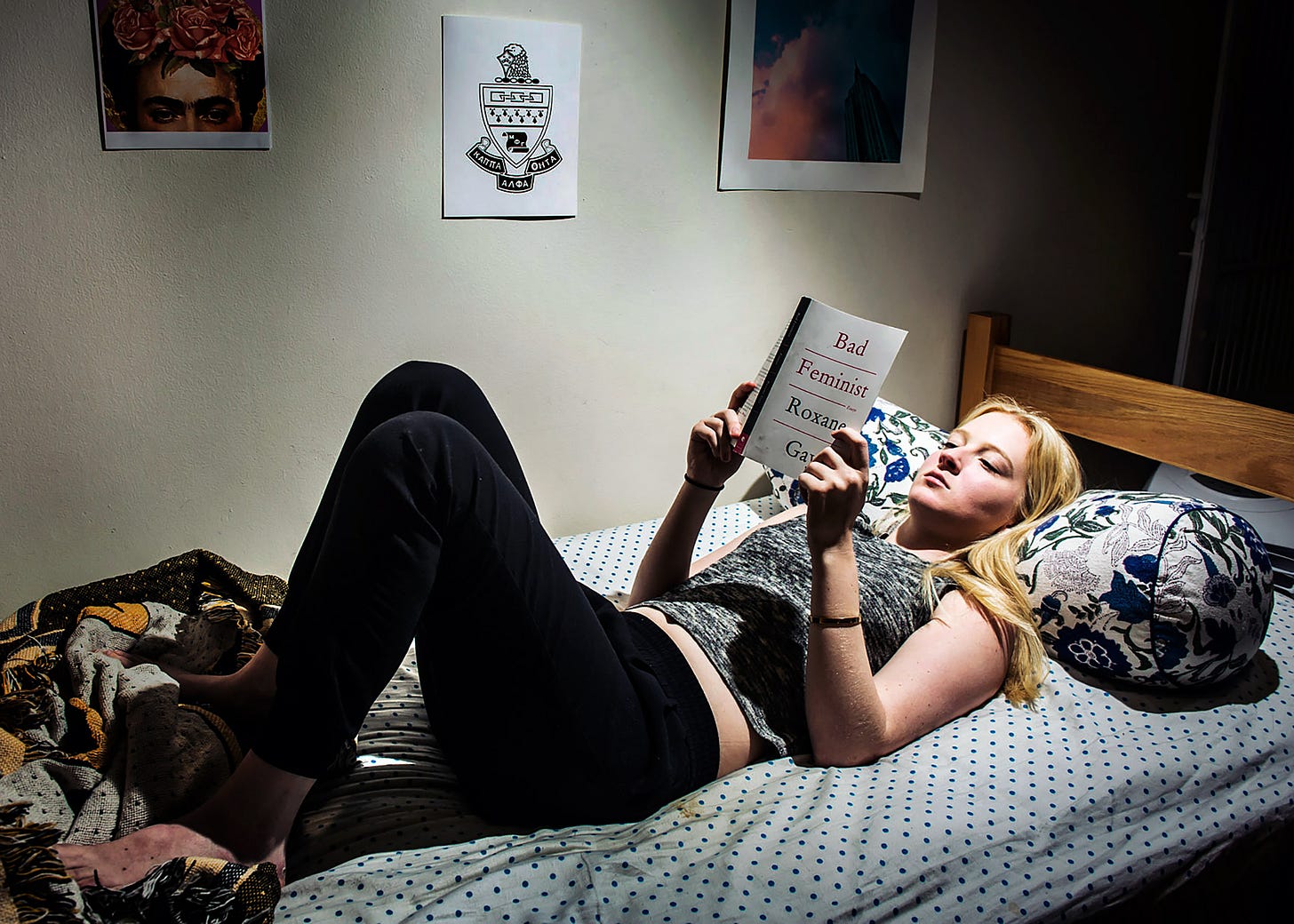
As always, thoroughly enjoyed your ease at articulating your perspective, and all the knowledge you provide. I clicked on the Elinor link and started to scroll through her work and was awed, thinking "she could be one of my new favorites," and then I realized I was already "following" her account, yet i've never seen any of her posts come across my feed. I'm assuming I follow her because you've mentioned her before, but it gave me an eerie feeling that IG is showing me more shit from accounts I don't follow than gems from ones I do. SO. . . thank you for possibly mentioning her again!
Great post, Dina Litovsky! I actually liked Barbie, but your take on it has helped me see the film in a slightly different light. Thank you for that.